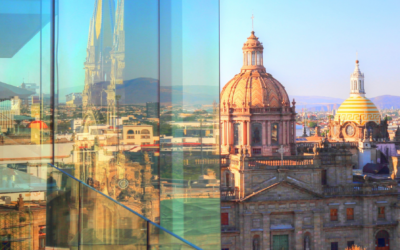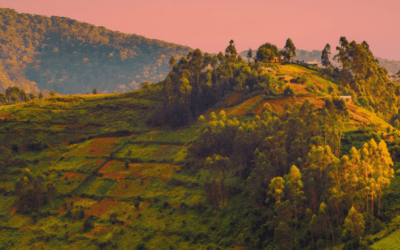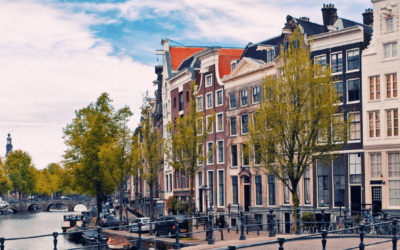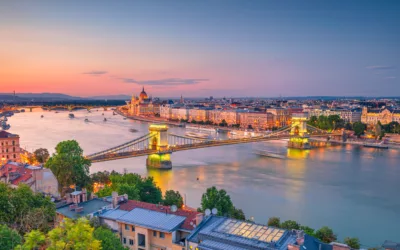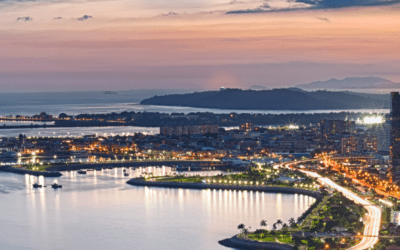Reporting from: Makati, Philippines
The real estate market here in Manila is exploding. Everywhere you turn, there’s a sign for a new development. Condos are the thing in this city of twelve million people – space is limited – and it seems everywhere you turn, there’s a new one going up around you. Donald Trump is here, and strangely enough, Paris Hilton is the face of a condo development as well.
Here in Makati, the central business district and ritziest parts of town, you’d barely even remember you left the United States. The Greenbelt Mall, for instance, features indoor and outdoor shops in five “pods”, from utilitarian electronic shops on one end to Armani on the other. There must be over 150 restaurants here. It makes the trendy mall you go to at home seem like a guy selling knock-off watches out of his jacket pocket.
And it’s here in Makati that you may be able to settle in with a second residence, or at least an offshore real estate investment.
For Americans, the idea of forty-story condo developments going up one a minute may be an eery reminder of the go-go days of the last decade. After all, while there are condos available for immediate occupancy, many of those have been snatched up by wealthy locals, wealthy Asians, and middle managers.
Much of what is being sold will be “turned over” anywhere from next year to 2018. I’ve asked the guys selling these condos – you can’t walk through a mall without tripping over a couple – what would happen if their developers went bust or canceled the project. Of course, they say it’s impossible.
While that should make you realize you need to find the right project, it’s a reflection of the amazing optimism present in the economy here.
If you’re someone who is reluctant to establish a second residence overseas for fear of culture shock, Makati may be the place for you. Every American fast food restaurant and many of its sit-down restaurants are right here in Makati, and throughout Manila.
The malls are clean, even amazingly so, with lush gardens and fountains. Streets are well-maintained albeit littered with cars in some of the world’s worst traffic.
And while prices for everything from electronics to toothpaste may be significantly higher in other westernized Asian destinations like Singapore, prices here are at American levels or below. TVs and big ticket items are comparable, while high-quality sit-down meals in trendy mall restaurants can be had for as little as $6-12 a person, tax and tip included.
Of course, if you’re more adventurous, you can venture out into poorer areas of the city and eat or pick up a few pairs of socks for less than a buck.
Foreigners are limited to owning condos in the Philippines – you can’t own a house or land unless you have a local with you. The fundamentals of the market here are a bit more sound than in the US.
Growth here has been around 6% for several years now. The government is improving infrastructure, even though it had to add a 12% VAT to help do it. Condos are being bought largely by individual owners with more money, or for rentals.
Flipping is not a thing here, either culturally or thanks to a roughly 11% capital gains tax for units for about a year after purchase.
If you’re used to a sprawling estate, you won’t find that here. Studio condos in Makati start at around 3 million pesos (US$75,000). Anything under 3.2 million pesos is exempt from the 12% VAT, which most salesmen won’t show you (I didn’t feel like they were trying to be obfuscatory, though). A 500-square foot one-bedroom might run you around $100,000, and some buildings under construction will give you an 8-10% discount for paying cash upfront.
What had initially troubled me was how easy it was to finance even a down payment. Some developers will let you spread out the down payment for 18 months, making the sums each month almost infinitesimal.
If you were to do research online, you’d think the next huge bubble was building as anyone with a pulse could get into a condo with $400 a month payments. Alas, that’s not really the case; a few developers do offer generous terms, but they are still eventually pushing people into 80% LTV loans with banks.
With the exception of one or two developments that will finance your entire purchase in-house, you as a foreigner will need to eventually pay cash. They’ll let you amortize part of the cost until you move in, at which point you’ll need to write a check for the balance. Banks typically require three years of residency to get a loan with them.
The good news is, real estate here is relatively affordable. While parts of Manila are unbelievably poor, Makati is on par with the nicest parts of any major US city. You might as well be shopping in Beverly Hills.
That is, if Beverly Hills had staggering humidity. You’ll pay for the privilege of living in such an exclusive place, but again, it’s on par with condo prices in smaller cities in the United States. If you’re coming from New York or LA, you’ll find prices to be a joke.
The commercial real estate market seems supported by very sound fundamentals and appears to be in solid shape. I can’t say that there isn’t a real estate bubble booming, but I don’t think it would be as significant as the ones in the western world as of late. The fundamentals here are better, speculation isn’t as significant, and credit is tighter.
Unlike people I know would bought multiple half-million condo units in Phoenix or San Diego in 2006, prices here are reasonable. If there were to be a correction, you wouldn’t lose massive amounts of money. And you wouldn’t be saddled with huge monthly fees; property taxes are around 0.2% a year (as low as $100) and monthly maintenance fees are pennies per square foot.
While the Philippines is on the upswing, with a new investment grade rating a stamp of approval from some experts I trust, I’m not saying to rush here to bank, store your gold, or anything else. Getting a citizenship here takes ten years of on-the-ground residence and it’s far from a sure thing even then.
But having a second residence is an important diversification tool to have a place to go outside your home country. And with the tropical weather and English skills here, the Philippines makes a reasonable choice for those who want the comforts of home.
I’ve been meeting with some government and business leaders about establishing a business, or just investing, in the Philippines, to get a visa or to provide an income while you live here. More on that on Monday.




